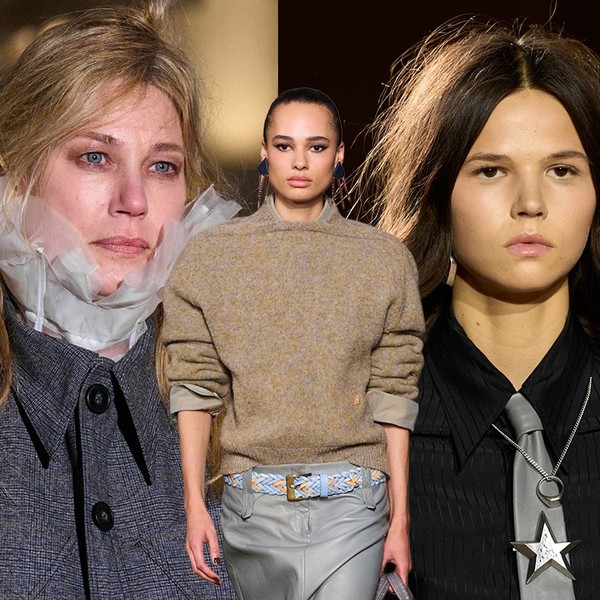8 Brands Making a Conscious Impact: A Closer Look at Sustainability in 2021
"The more we support brands who do what they do in better and more responsible ways, we raise the bar for what we demand as consumers."
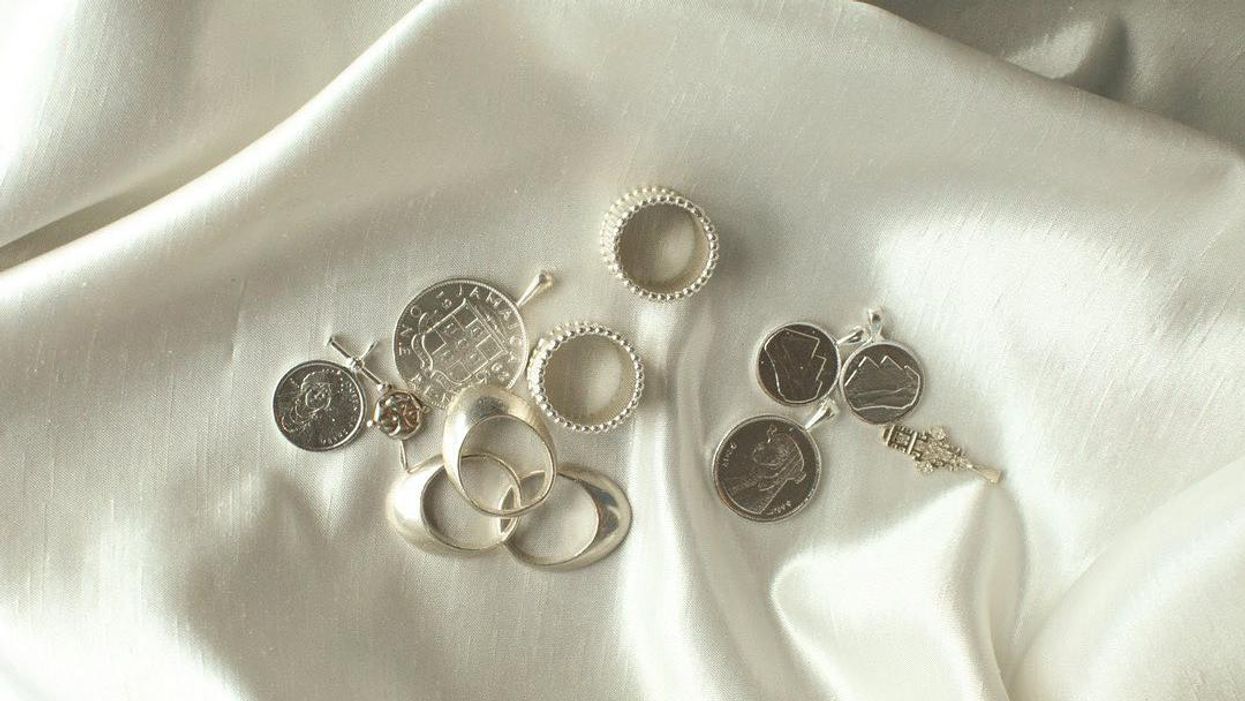
We are taught at a young age the dynamics of the fishbone diagram—also known as the cause-and-effect diagram. A seemingly simple organizational tool to identify the cause of a problem and the effect of various solutions, the fishbone diagram first introduced that our actions do have consequences, whether positive or negative. When approaching sustainability—a term that has gone mainstream and gotten somewhat convoluted—through the lens of the fishbone diagram, it's actually quite tangible: Our everyday choices make an impact.
Over the last several years, the term sustainability has been put on a pedestal, almost out of reach. But at its core, sustainability is a product of the cause-and-effect connection, and it's our responsibility to understand, discover, and sacrifice when making conscious choices to ultimately minimize our footprint. From recognizing the carbon impact of single-use plastic to consciously sourcing materials, there is a lot to be mindful of when shifting the linear system into a circular, restorative cycle—and it starts within our daily practices. In April 2019, Julia Gall, accessories director of Marie Claire and low-waste convert, challenged herself to monitor her plastic use for a month. Since the eye-opening exercise, she has become a thought leader in conscious living, continuing to challenge herself and her industry peers. "My whole life, I felt like I was taking waste management and recycling for granted, so I took it one step further and overall tried to reduce my waste as much as possible. It is not easy! You arrive at some really hard truths in how you live and what you require in order to do so. In the process, I've swapped to fabulous low-waste products like toothpaste tabs and refillable soaps and money-saving tricks like hand-washing my sweaters instead of dry-cleaning them all," reveals Gall. "Most of these things I've discovered aren't new concepts, but it's also made me inspect the other parts of my life and how I live it. Sustainability is another form of self-care. It's not just about being kind to the planet; it also means being kinder to ourselves in the process." Gall is committed to providing her readers with better market options and less reliance on trends. "Everyone is eventually going to have to shop for another t-shirt, but it's important to consider where this t-shirt is coming from, if the cotton is organic, if it's manufactured locally, if the workers are paid proper wages, and so forth. Our standards for price and quality need to be equal to the standards of how the item is produced. The more we support brands who do what they do in better and more responsible ways, we raise the bar for what we demand as consumers."
While there are no shortcuts or easy ways out when it comes to intentional living, there have been several change-making brands that have emerged over the years that make the sustainable choice the easy one. From wellness and beauty to fashion and hospitality, we're taking a close look at eight brands that have woven sustainability into their brand's DNA since day one to see what the future of conscious impact will look like in 2021.
In Beauty
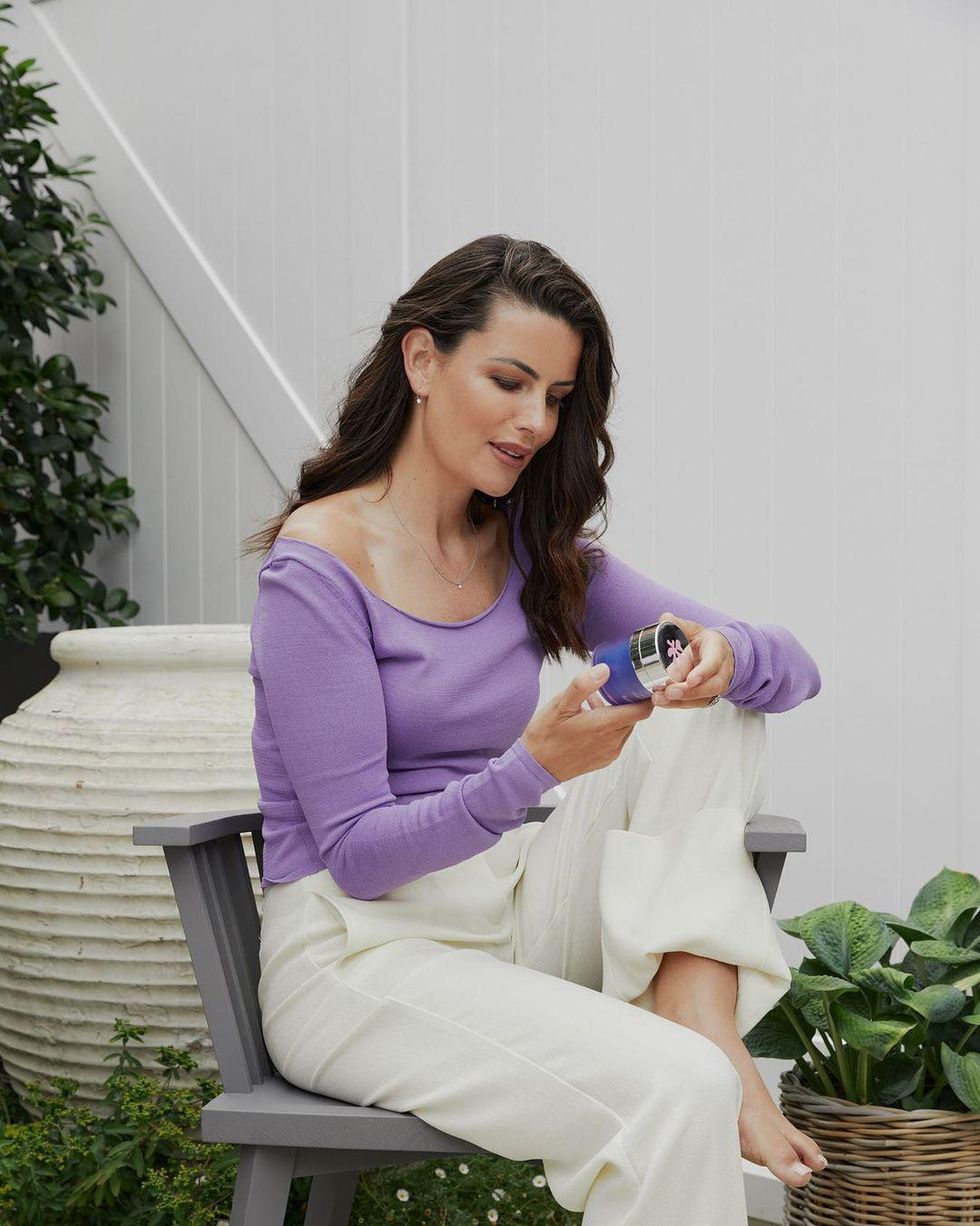
Photo: Courtesy of Emma Lewisham
New Zealand's favorite skin-care brand, Emma Lewisham, is redefining the beauty industry's standards to prove it is possible to produce natural, science-backed skin care while also setting a new, sustainable standard every step of the way. As a global leader in a circular beauty model, Emma Lewisham is predicted to be a 100 percent circular-designed brand by July 2021. With the global cosmetic industry producing 120 billion units of packaging each year, with local recycling programs accepting few, remaining waste (think push pumps and colored plastics) ends up in a landfill or scattered throughout the environment. "Our mission is to transform the beauty industry from a linear to a circular model," says founder Emma Lewisham. "This means shifting towards a design for continual use and reuse, with 100 percent of our packaging to be refillable, recyclable, or compostable. In 2020 we launched the Emma Lewisham Beauty Circle Recycling Programme, a free, incentivized product stewardship program to ensure we kept our packaging in circulation. This accepts not only our packaging waste, but that of other brands. We also launched the Emma Lewisham Beauty Circle Refill Programme for Australia and New Zealand; refills are the ultimate solution in keeping the packaging in circularity."
In looking to the future, Lewisham adds, "As a business, Emma Lewisham is continuously innovating and challenging the status quo, particularly in the area of sustainability. The current take-make-waste linear model of beauty is not sustainable, and we need to bring an end to it fast. We believe, for beauty to truly be sustainable, it has to be circular. This is the future of sustainable beauty. The big picture is really simple. We cannot change the universe's laws or the earth's natural systems that govern all life on earth. We have to live in harmony with them. And every natural system on planet Earth is circular. So to truly be sustainable, a business must become circular, and our economies must become circular. This means there is no waste and all our energy comes from renewable sources."
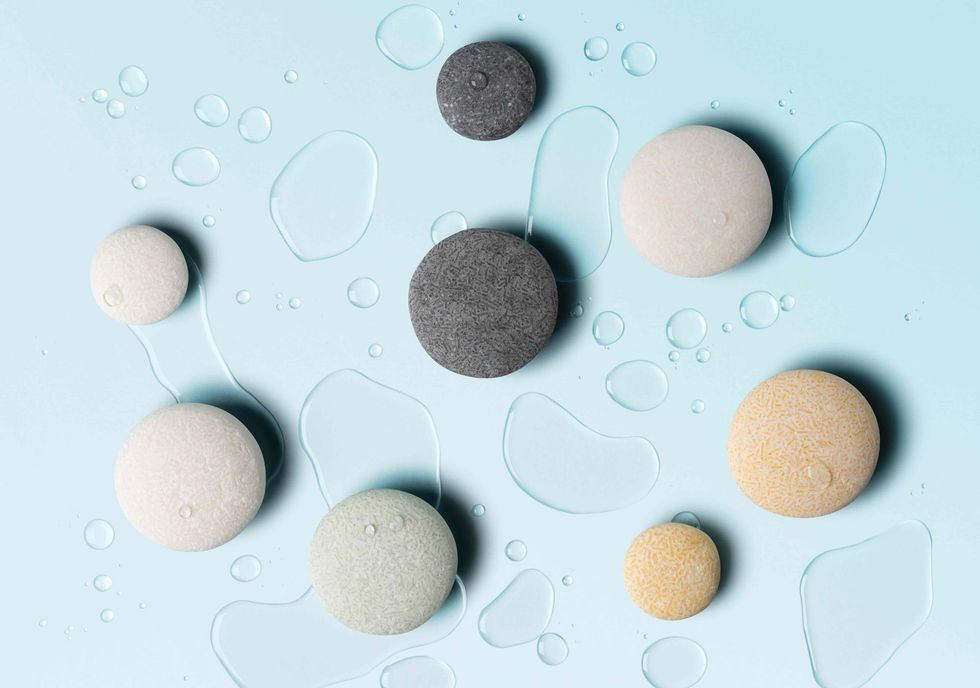
Photo: Courtesy of Superzero
Launched in November of 2020 by longtime beauty exec Dr. Conny Wittke, Superzero's mission has been to "beat the bottle" by creating a new beauty bar without water (fun fact: many beauty products contain 90 percent water, which is why they are packaged in plastics), eliminating plastic, and ditching wasteful packaging—ultimately, reinventing hair care. Perhaps the most admirable commitment of this brand is its dedication to understanding its consumer. "Consumers are waking up to both the environmental damage caused by plastic and the negative health effects of microplastics. But they also have busy and stressful lives. It is on us to make sure that sustainable, conscious, and healthier choices are a better choice for them also when it comes to experience and results, and we need to support them by making our products easy and seamless to use," says founder Conny Wittke.
With an exciting launch in April, an anti-frizz serum bar, the brand will use a plant-based, fully biodegradable material that beats dimethicone and cyclomethicone in performance while having none of their detrimental environmental effects. "We take a very diligent and rigorous approach when it comes to sustainability," explains Wittke. "We truly look at every component, from ingredients and their origin and end of life, to the packaging, including materials, printing colors, and adhesives used, the size of our products and how that impacts their carbon footprint during shipping, etc. There are amazing advances in ingredient technology that are making it possible to achieve outstanding results at no cost to the planet, and we are at the forefront of that. For example, the squalane we use is bio-engineered from sugar cane, and our blue-light-absorbing blueberry seed oil is cold-pressed from unused pulp from the juicing industry, thus providing excellent quality while fighting food waste."
In Wellness
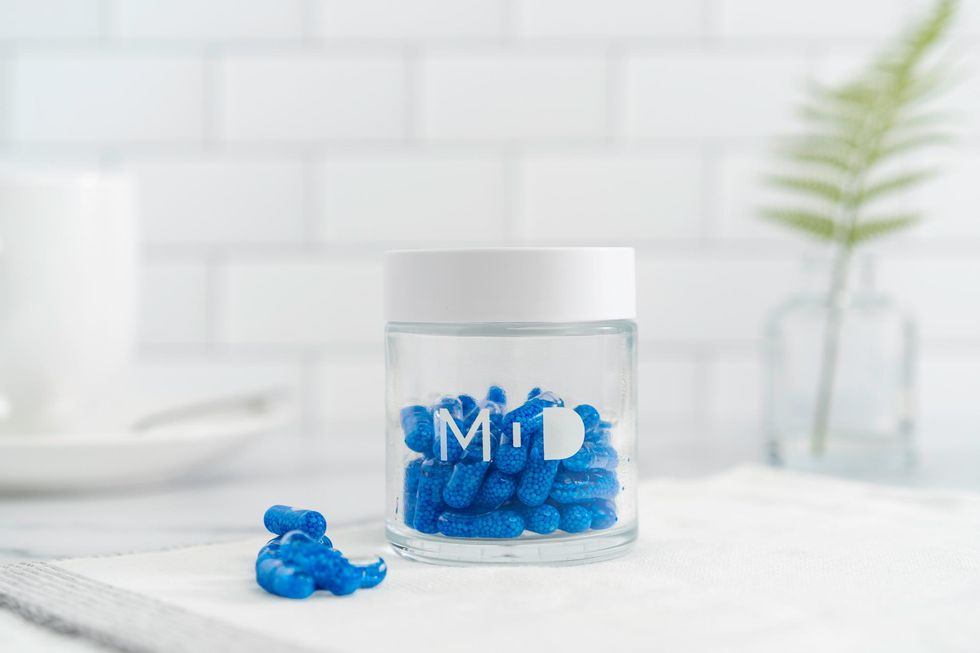
Photo: Courtesy of Mushroom Design
While there is no doubt mushrooms as an integral ingredient in the beauty industry are on the rise, they are also emerging in the wellness space. Mushroom Design, a new brand on the wellness scene, has created the first-ever mushroom multivitamin that boosts immunity with an expertly balanced bioactive blend of nine mushrooms and nine vitamins—but that's not all. Since day one, the brand was built on the desire to do better and do more, which often means doing less. The brand ethos manifests less carbon output, less waste, and less fake fluff through putting the planet before the product. "For us, sustainability is a mandate, not an option," reveals founder and CEO Ashley Southard. Every single element of Mushroom Design—from the purely plant packaging (with the box made out of 100 percent recycled cardboard, hence why it's brown) and the ink for printing being carbon-negative algae ink, to its refillable glass bottles and chemical-free dye (the blue comes from cabbage)—is intentional to making a greater impact. Southard adds, "As humanity evolves, so do discovery and innovation, such as the relatively recent recognition that kelp forests sequester up to 20 times more carbon per acre than land forests (and require less labor to set up). Excess carbon in the atmosphere is one of the leading causes of global warming. This, for example, is why Mushroom Design uses carbon-negative algae ink."
For Mushroom Design's future? Southard believes, "There will be an increase in e-commerce, so I believe the onus of responsible shipping, packaging, and supply chain will continue to lie on corporations selling goods as consumers are demanding more transparency than ever—in quality and environmentalism."
In Lifestyle
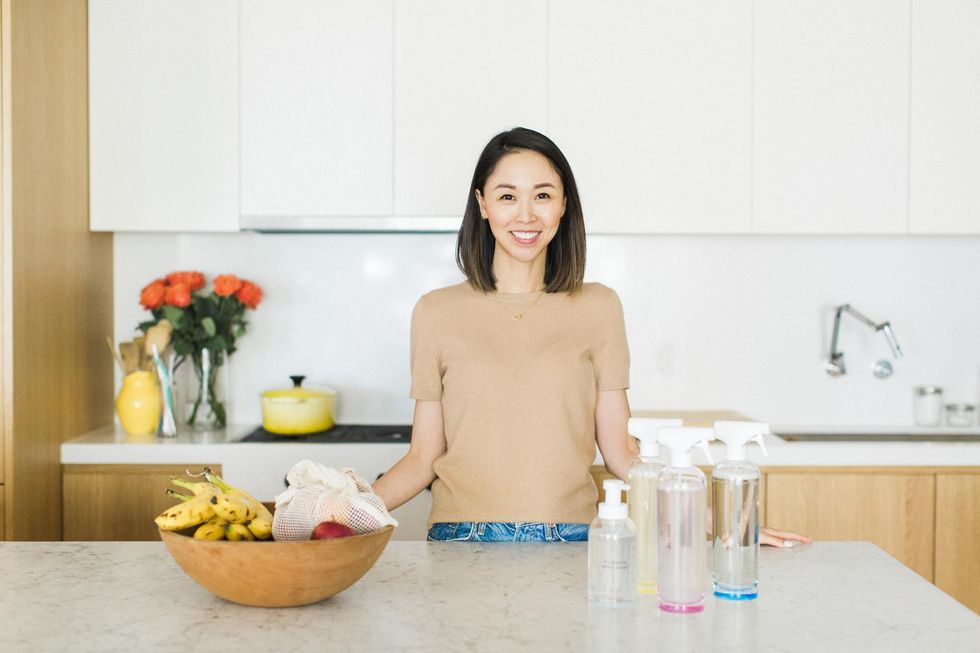
Photo: Courtesy of Blueland
Blueland is reimagining conventional household products to eliminate single-use plastic packaging and finally offer consumers a better and more sustainable option. At last, an easy, simple swap in products to commit to making a conscious impact. "Our innovative products can divert more than 100 billion single-use plastic cleaning bottles in the United States alone. The main goal for our products is for consumers to be able to make an easy swap to the products they are already using without having to pay a premium," says co-founder and CEO Sarah Paiji Yoo. "All products are designed in tablet or powder form to be mixed with household tap water, saving consumers money and space while also saving the planet," she adds.
Blueland's products come with a Forever Bottle, meaning you buy the packaging only once—with no single-use plastic containers—then simply purchase refill tablets when needed. The brand will continue to expand its product offering to ensure that households are effectively eliminating plastic waste—just in the past year, they evolved into the dish and laundry space, with exciting launches ahead, reveals Yoo.
"As consumers become more aware and conscious, they are holding brands to a higher standard and will continue to raise that part as a result. Over the years, there has undoubtedly been an increase in consumer demand for sustainable products and, with it, the number of eco-friendly claims made by companies; in turn, there has been a boom in greenwashing—brands largely exaggerating their environmental credentials to win over customers. According to impending legislation from the EU, these claims are often false and set to become illegal overseas. With US government intervention on the matter being scarce, and as a reaction to COVID, the home category has quickly become the new frontier for greenwashing in the States," explains Yoo. For the future of 2021 and beyond, Yoo urges customers to do their research and "look under the hood" to ensure they are truly making an educated impact.
In Fashion
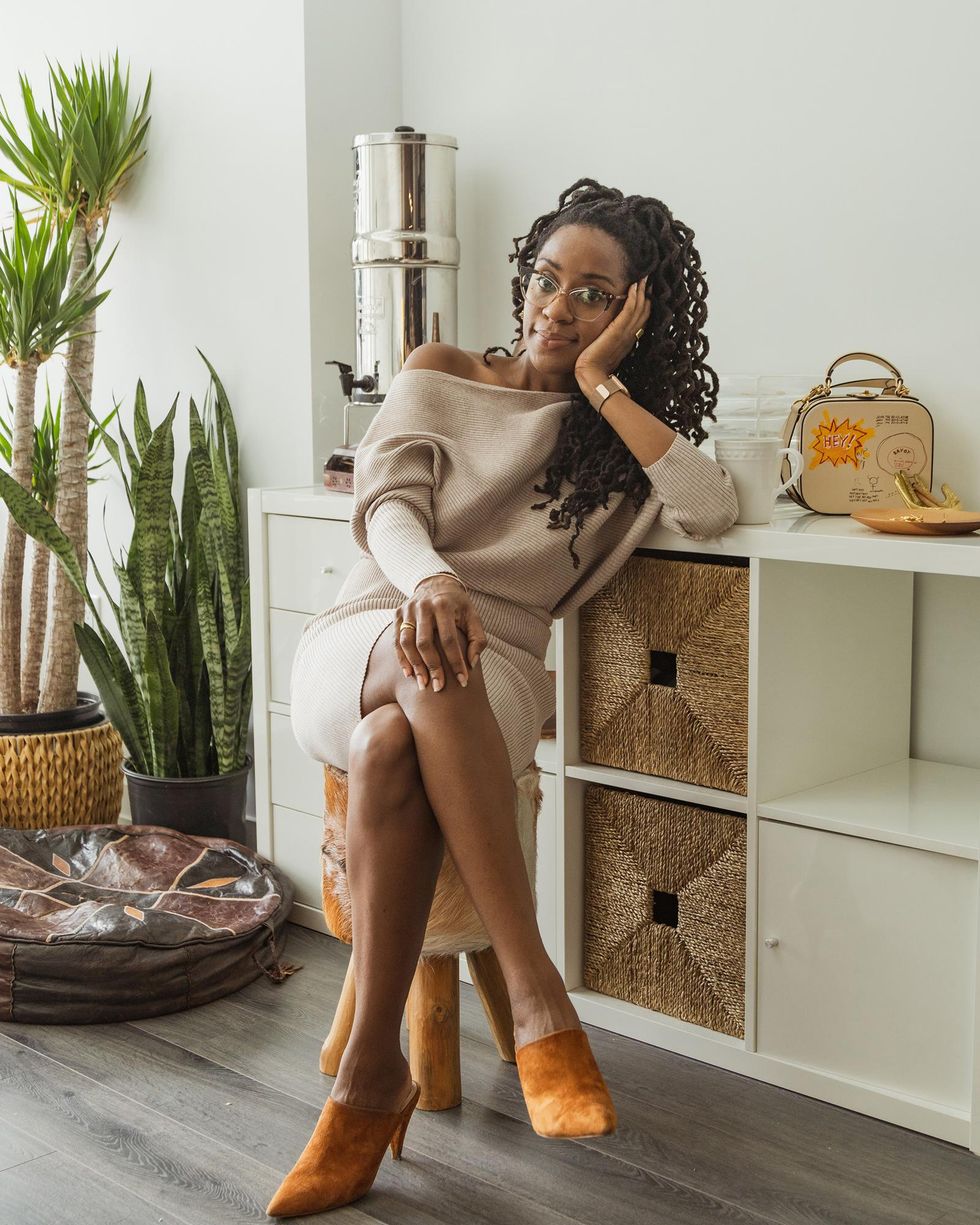
Photo: Courtesy of Omi Woods
Omi Woods is a contemporary jewelry line that is individually and ethically handmade with fair-trade African gold and globally sourced, conflict-free fine metals. A brand dedicated to celebrating the connections to Africa, it practices sustainability through making a positive impact on the communities it comes from and is extracted by artisanal miners, so it has a low impact on the planet. According to the founder, Ashley Alexis McFarlane, "We approach sustainability from a very traditional perspective. Our pieces are made with processes that have been used for thousands of years. Everything is done locally, and I walk to all my jewelers and suppliers. It's a nice community. As I expand and scale as a result of the modern digital age and growth in online sales, it's about keeping that same quality and consciousness, but linking with like minds globally to produce products that are done with care for workers and the environment, but with people I know personally and I know have the same sustainability ethos as the brand. So 2021 and beyond is about taking the time consciously."
McFarlane also adds, "I think sustainability and making conscious choices is something that necessitates constant evolution. We are in an age where new materials are always developed and new ways of doing things. Even the packing we use or the amount of greenhouse gasses we offset. There's always room for tweaks and improvement, and the end goal should be carbon negative and full lifecycle. Fine jewelry is a great product because the industry has evolved over the centuries to sustainably manage precious-metal resources. No one throws gold or silver in the garbage. All our scraps are reused or brought to refiners—literally, the tiniest scraps, and it can be done fairly easily. That inherent need to conserve is just entering other industries, and it's great to see the processes people are developing around it."
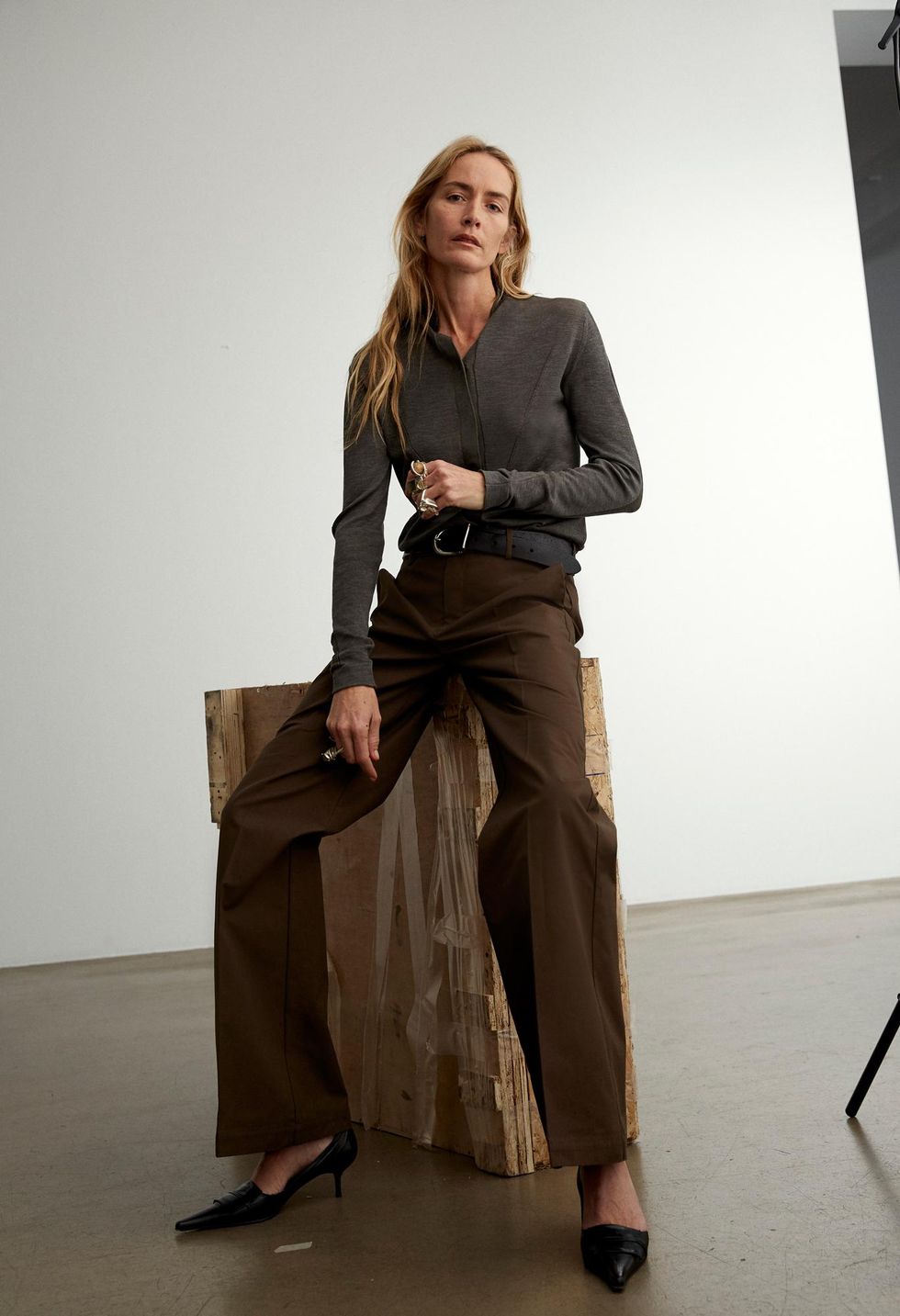
Photo: Courtesy of Bite Studios
Bite Studios was founded with the mission to accelerate the world's transition into more sustainable consumption by creating a modern alternative to consuming clothes out of the founders' joint thoughts on how they want the world to evolve and what makes life interesting. With the belief in the urgency to fight climate change without compromising when it comes to clothing, the brand offers an alternative business model. "Ninety-five percent of our styles are made with natural organics, recycled, certified fibers, or low-impact materials. We work together with our suppliers in developing high-quality organic silk, cotton, wool, and linen; recycling polyester; and making innovative fabrics, such as bio-vegetable leather. Sourcing is a laborious and time-consuming process for us, but we are very proud of this work. We reject most of what is available to work with the best-quality materials, certifications, and standards," explains CEO and founder William Lundgren.
Bite Studios is setting a new luxury precedent that they believe will become the new norm in years to come. Lundgren reveals, "The fashion industry is the world's second-largest polluter. It accounts for about 10 percent of global carbon emissions and nearly 20 percent of wastewater. Fashion uses up more energy than both aviation and shipping combined. These are the kinds of statistics that have motivated a lot of the fashion set to be more deliberate about where they spend their money," he adds. Thus, the brand's collections are always built on a signature of core classics through modern design, meant to be cherished and worn for years. Bite Studios also offers a buyback program that allows shoppers to sell their worn items back to Bite to be recycled into new collections.
"Some still—in 2021—believe that sustainability equals poor quality, when in reality, it is the exact opposite. These breathable, versatile, natural fibers of beautiful silks, wools, and cottons are more luxurious and long-lasting than many synthetics—and better for you to wear close to your skin, without toxic chemicals," says Lundgren.
In Brick-and-Mortar
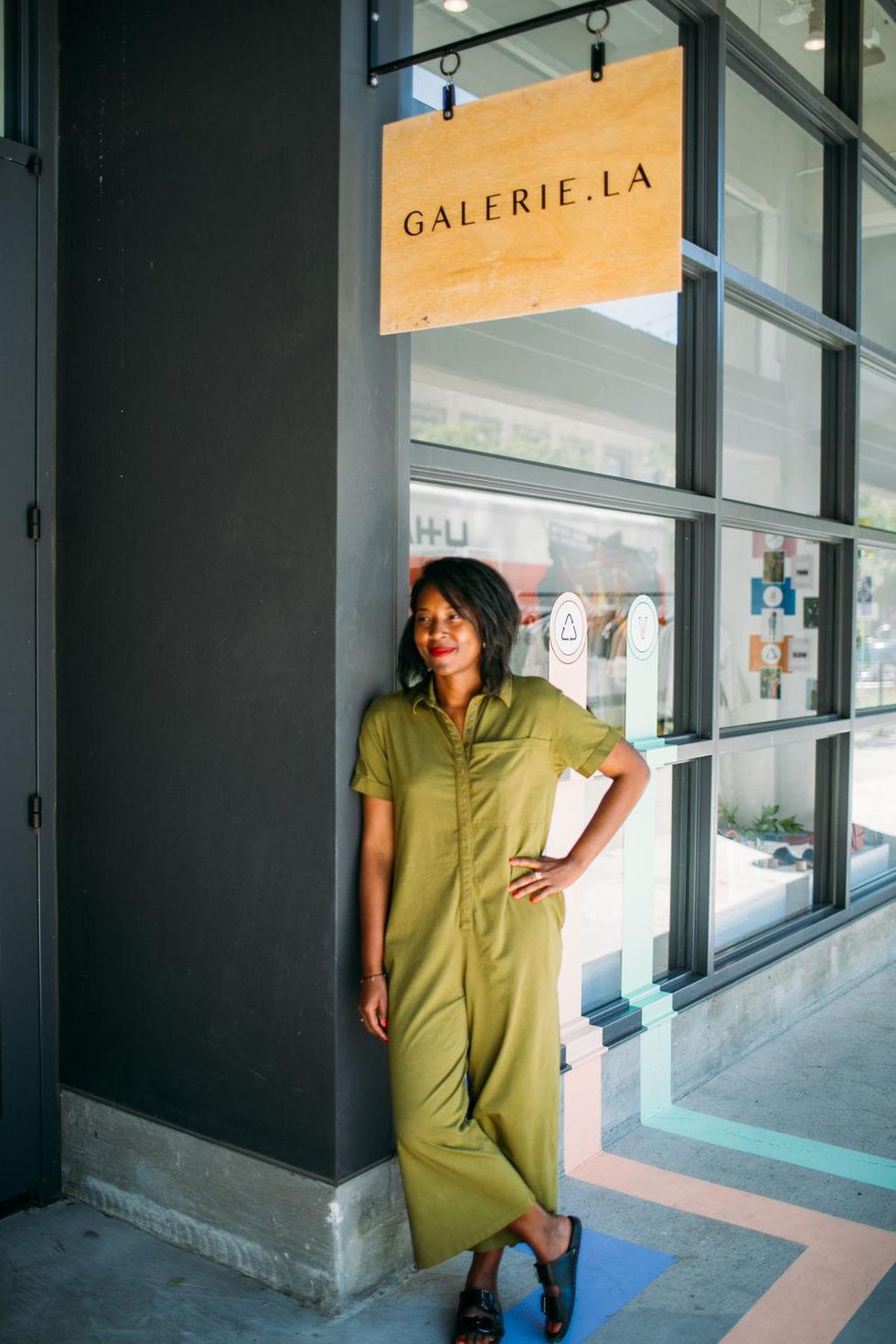
Photo: Courtesy of Galerie.LA
Galerie.LA curates a selection of sustainable brands with refined styles backed by ethical production, encouraging consumers to shop their values through lifestyle goods that are vegan, recycled, eco-friendly, artisan, and locally made. Galerie.LA makes sustainable shopping easy by giving the modern woman access to a collection of thoughtfully curated brands. Founder and creative director Dechel Mckillian fuses her stylist eye to curate the most intriguing sustainable brands worldwide. The brand's mission is simple: to bring sustainable brands to one platform that makes it easy to decide what to buy and support along with helping educate customers of their impact on the world through their buying decisions.
For this next year and beyond, Mckillian says, "Galerie.LA will be expanding into new categories like zero-waste home, clean beauty, personal care, and wellness. Our customers started asking us questions through our chat and email, like, 'what's the best brand for menstrual cups,' 'where can we find mushroom coffee,' and many others. We already have their trust for sustainable clothing; why not give them the entire lifestyle?" Mckillian adds, "For us, being intentional about every part of the business from the way we market to our customers all the way to the packaging. There's room for improvement to get better and reduce our impact every step of the way. I always hear 'Sustainable fashion is not affordable.' I wish people would stop believing this because it simply stops you from trying to shop sustainably. It's about being an intentional shopper and creating new habits around shopping. It may mean saving up for a new piece you love and will wear for years to come as opposed to making that impulse buy from a fast fashion brand that is cheap and will fall apart after a few wears."
In Hospitality
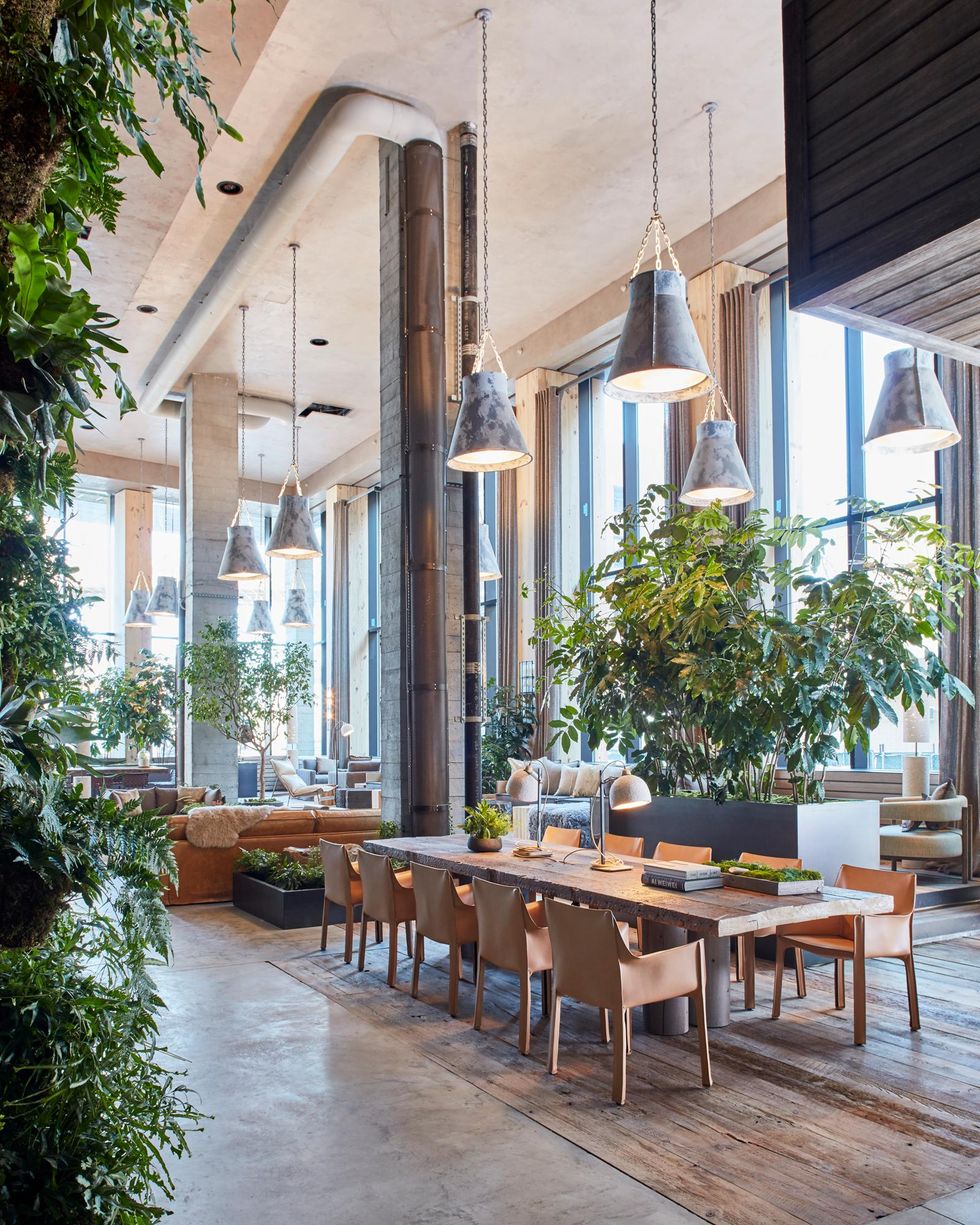
Photo: Courtesy of 1 Hotels
As a sustainability leader in the hospitality industry, 1 Hotels is inspired by a simple idea that those that travel the world should also care about it. 1 Hotels upholds this vision by channeling nature through design and culinary partnerships, connecting with the local community, and working to ensure resource efficiency. As sustainability is core to their DNA, 1 Hotels designs each hotel and product to highlight nature's beauty, fusing luxury with responsibility, to create refreshing experiences. "Waste is a huge part of sustainability because the most sustainable product in the world could still have a tremendously negative impact if it ends up in a landfill. We've spent time gaining clarity on opportunities to minimize waste to landfills and optimize recycling. We want to be leaders who promote zero waste in hospitality and share our learnings with our guests," explains Corinne Hanson, corporate director of sustainability and impact at SH Hotels & Resorts.
As we begin to travel again this year, Hanson reminds us of mindful practices within 1 Hotels. "We've replaced as many single-use products as possible on the property to help with this mission. We use glassware in our guest rooms and kitchens and offer compostable or recyclable takeaway materials wherever possible. We eliminated straws across all of our properties. In 2021 we included single-use plastics as part of our overall waste goals—something as simple as knowing exactly how long your shower should be to conserve water is learned by utilizing the hourglass found in bathrooms across all 1 Hotel properties. Our hotels offer teachable moments throughout to exemplify how you can make easy changes to your every day."
Top photo: Courtesy of Omi Woods
Want more stories like this?
The Surprising Materials Designers Are Using in the Name of Sustainability
Fashion Sustainability Is No Longer an Option—It's a Necessity
A Complete Guide to Carbon Neutrality in Beauty

